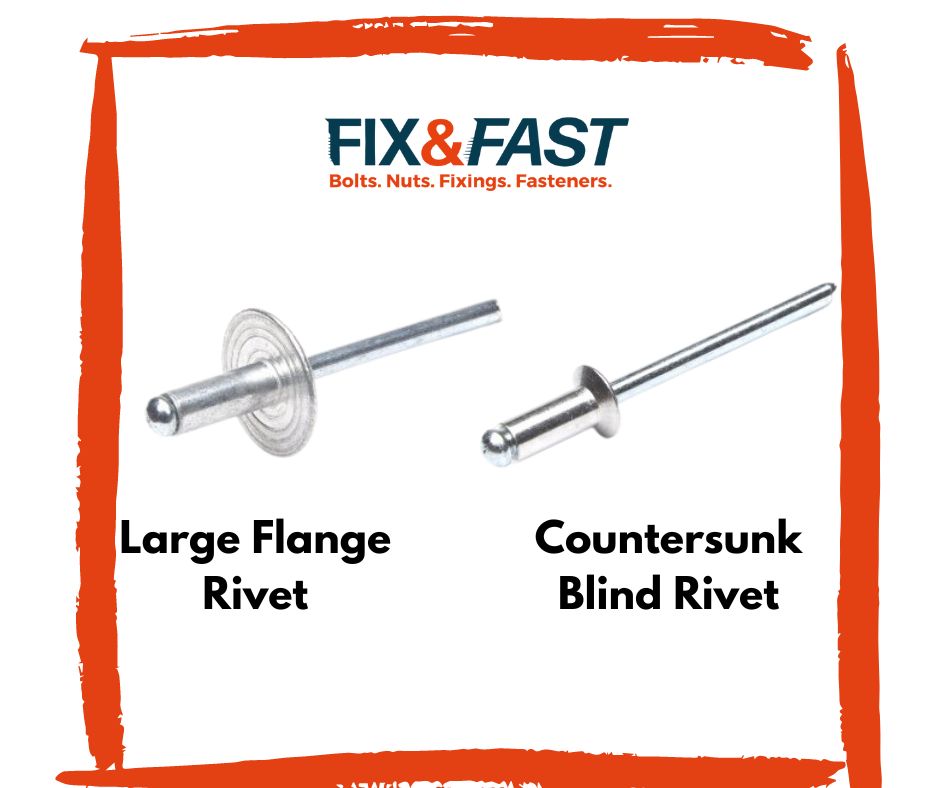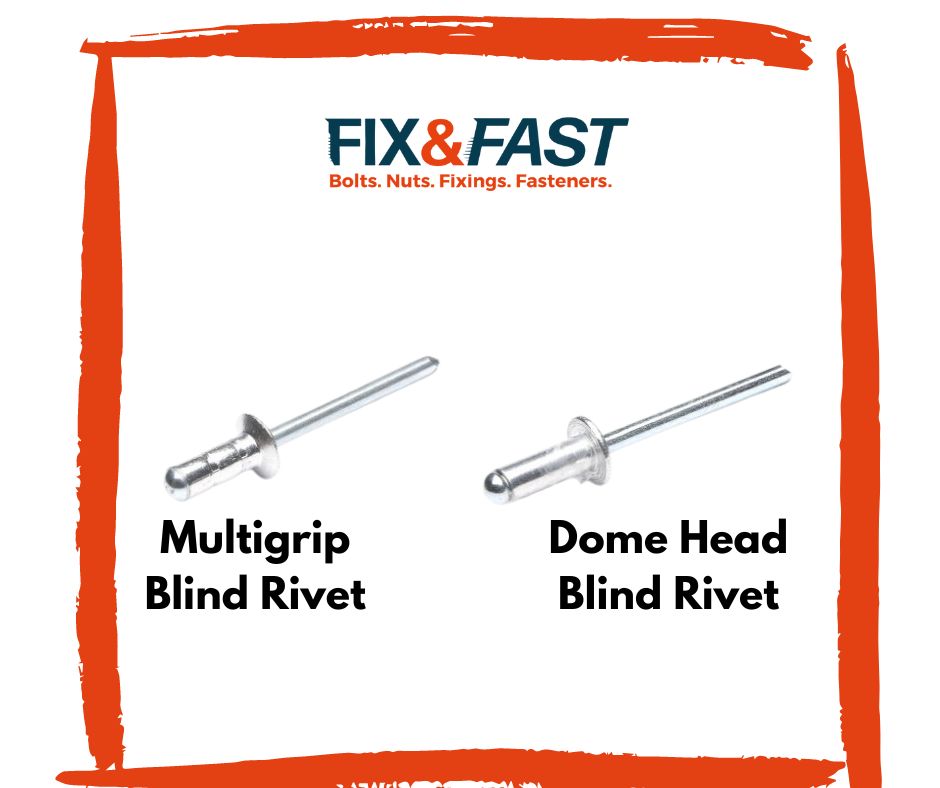Understanding Different Types of Rivets
Welcome to our Fix and Fast Guide to the Different Types of Rivets.
In Fixings and Fasteners Rivets stand as stalwart connectors. Providing strength, durability, and reliability across diverse industries and applications. From aerospace engineering to DIY projects, rivets have proven indispensable.
In this Fix and Fast guide we answer the regular questions our Fix and Fast technical team get about Rivets. Questions like What is a Rivet? What are the different types of Rivets? And How do Rivets work?.
We will also look at some of the industries that regularly use Rivets.
What is a Rivet?
A rivet is a mechanical fastener used to permanently join two or more materials together. It typically consists of a cylindrical shaft (known as the shank) with a head on one end. The rivet is inserted into pre-drilled holes in the materials to be joined and then deformed to create a permanent connection. This deformation, often achieved through hammering or compression, secures the rivet in place. There are many different types of rivets available dependant on your industry and application.
How Do Rivets Work?
Rivets function by creating a strong, tight bond between the materials they connect. When a rivet is inserted into the pre-drilled holes, its tail end (the end opposite the head) is deformed. This deformation, whether by compression, expansion, or a combination of both, causes the rivet to expand within the hole. As a result, it creates a tight fit, effectively locking the materials together. The head of the rivet prevents it from pulling through the hole, ensuring a secure joint.
Different types of rivets will require a pneumatic rivet gun or a hand riveter are required to fix them in. To fit a blind rivet you feed the shank of a rivet into a predrilled hole. The mandrel is pulled out of the shank using the rivet gun. Pulling out the mandrel collapse the rivet on the underneath and fixes the materials together.
Different Types of Rivets and Their Uses
Standard Rivet: These can come with a domed head or countersunk head. Domed rivets have a downward facing head as opposed to countersunk rivets, who have an upwards facing head.
Blind Rivets: Also known as pop rivets, blind rivets are ideal for applications where access to both sides of the materials is limited. They feature a mandrel, a thin rod that extends through the rivet body. When the rivet is installed using a rivet gun, the mandrel is pulled up, causing the rivet to expand and secure the materials.
Large Flange Rivets: These rivets have a wider head than standard rivets. They offer more strength, and a suited to attaching sheet metal to timber frames. The wider head on a flange rivet offers a larger surface area of coverage, meaning less rivets are needed.
Multigrip Rivets: Multigrip rivets are versatile fasteners designed to accommodate a range of material thicknesses. Unlike standard rivets, which require precise hole sizing, multigrip rivets can handle variations in hole diameter, making them suitable for applications where hole size consistency is challenging.
Dome Rivets: Dome rivets, also known as round head rivets, feature a rounded head that protrudes above the surface of the materials being joined. They offer a decorative finish and are commonly used in applications where aesthetics are important, such as in furniture manufacturing or automotive trim installation.
Who Uses Rivets?
Rivets find applications across a wide range of industries and sectors:
Aerospace: Rivets are extensively used in aircraft construction due to their lightweight and high-strength properties.
Automotive: From assembling chassis components to securing trim panels, rivets play a crucial role in automotive manufacturing.
Construction: Rivets are used in structural steelwork, curtain wall construction, and architectural metalwork.
Marine: In boat building and ship repair, rivets are employed to join hull plating and structural components.
DIY Enthusiasts: Hobbyists and DIY enthusiasts use rivets for various projects, including metalworking, woodworking, and leathercraft.
Where can I buy good value Rivets?
Rivets are indispensable fasteners that offer strength, durability, and reliability across diverse applications. Understanding the different types of rivets and their uses is essential for selecting the right fastening solution for any project. Whether you're in the aerospace industry, automotive manufacturing, construction, or simply tackling a DIY project at home, rivets from Fix and Fast provide the reliability and performance you need to get the job done right.
Our Fix and Fast team have a comprehensive understanding of different types of rivets and their applications. Get in touch if require advice on Rivets via www.fixandfast.co.uk or email us on sales@fixandfast.co.uk
Our Fix and Fast team will help make informed decisions when choosing fastening solutions for your projects. Whether you're looking for blind rivets, multigrip rivets, or dome rivets Fix and Fast has you covered with a wide selection of high-quality rivets designed to meet your specific needs all at great value pricing. Our credit trade accounts are also available.










